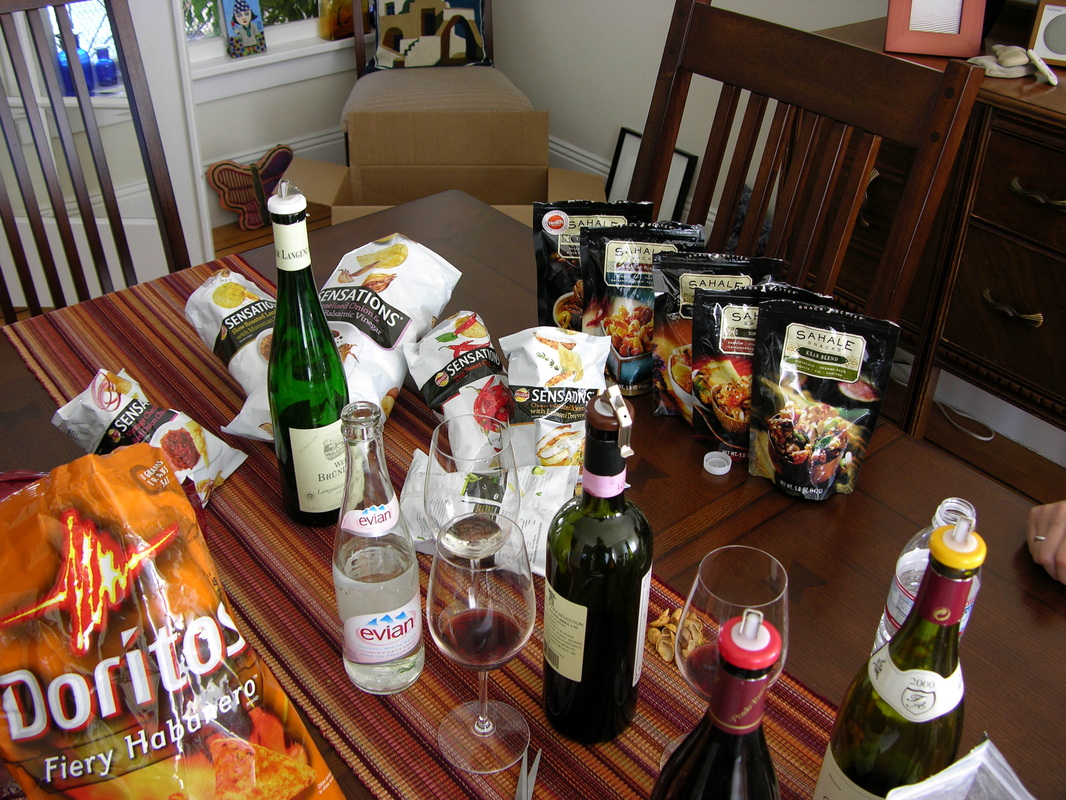n
In any tasting/drinking experience, there are three sets of variables: the wine, the taster, and the context. For the sake of time, space, and sanity, let’s deal with a single context–a wine being professionally tasted and reviewed. Be aware that there are many other contexts with tasting, and more importantly, drinking wine. But we’ll save those for another time. Let’s say that you’ve submitted your wine to Wine Wazoo Magazine to be reviewed. Here’s a short list of some of the contextual variables to consider before you ship your bottles off to be tasted and reviewed by this august publication.
The Wine
Is it a good bottle of your wine? Does the bottle have a good cork? A lousy cork? Is there TCA in the bottle? Are there other flaws in the wine? Did your bottle arrive in good condition? Did it freeze or experience extreme heat or too much motion during shipping? Is your bottle actually as advertised or is it a separate cuvée/lot of the same wine sent to the reviewer to provide a better impression? Hmm, that’s never happened before. Is your wine being tasted at the right temperature? Too cold? Too warm? How long has your bottle been opened before being tasted? Last week? When was your wine poured? This morning? Yesterday?
The Taster
Is the taster working for Wine Wazoo Magazine who will taste your wine fresh, well rested, and ready to go? Or did she or he stay up half the night watching the complete episodes of Sea Hunt on DVD? Does the taster have a cold? Allergies? Fever? Diarrhea? Did the taster just burn the roof of their mouth on pizza at lunch as in right before they’re going to taste your wine? Are they depressed? Happy? Angry? Did they just break up with their girlfriend/boyfriend? Do they have a new girlfriend/boyfriend? Just changed their medication? Did they just brush their teeth before tasting? Have a double macchiato before tasting? Is the Wine Wazoo taster a seasoned professional with lots of experience over a broad range of wines? Or is he or she just a novice pitch-hitting for the usual starter? Does the taster have an alarming compulsion for your wine/grape/style/appellation? This could definitely work in your favor. Or does the taster have a professed hatred for the grape/appellation/style of wine that happens to be the same as your wine? Hmmm. Not so bueno.
The Context
Is good glassware being used for the tasting? Plastic tumblers? Is the glassware clean and polished? Or is it skanky like a dirty aquarium because of a faulty dishwasher or polishing cloth? Is the tasting space too warm? Too cold? Poor lighting? Extraneous odors? Dogs? Perfumes? Colognes? Blaring AD/CD on the speakers? How many wines will be tasted in the session? A few? Over 100? How many wines will be in the flight when your bottle is tasted? What order will the wines be poured? Will your wine be tasted after dessert wines? Before? How will your wine be positioned in the flight? At the beginning where it will tend to show best? Or towards the end where it could be overshadowed by more powerful, oaky, and tannic wines? Aye caramba!
At some point during my five day class at the CIA, I have the students create a list of the variables like the one above so they can get an idea of the scale of numbers involved. By the end of the exercise, their brains are spinning. Likewise, after reading the list above your mind might be spinning as well. That’s no surprise. I often compare the tasting experience to trying to have a conversation with someone, only you’re both on separate merry go rounds spinning in opposite directions. The timing, needless to say, had better just right.
How and why is context important? What does it mean to you? How can it be useful?
First, you now have the awareness that context exists and that is a powerful tool in itself. You also know just how pervasive it is and how it shapes every wine experience.
Second: you can now use context as a filter when reading any written review about wine—and that includes mine. You also know by default that there’s a caveat to any wine review/critique, and that caveat is the context of how and when a given wine was tasted. I would especially recommend using the context filter when reading publications that use numeric scores for wine, something I’m still trying to fathom the meaning of after many years. Somebody please explain to me how something as precise as numbers can be applied to wine given all the variables above. And that leads us to today’s lesson:
Wine is NOT Precise
The longer I’m in the wine business, there’s really only one rule or law that seems to be immutable in any circumstance and context: wine is not precise. That as much as we professionals try to make wine easily understandable and predictable, it’s anything but. That as much as we cling to what are called “classic grapes” and “classic wines,” the wine world is constantly changing and our classic grapes/wines are like pieces of an ice floe breaking off and slowly drifting apart from the whole. Combine that with the all the context variables above and you might indeed suffer a crisis of wine identity, if not personality. Fear not. We have to start somewhere if we’re going to have a shared and hopefully pleasant hallucination called the wine experience. That means much, but probably not all, of the wine language we use just might start to make sense, not to mention the tradition and decorum of how wine is tasted and served. It’s all a starting point to be able to share a personal and very subjective experience. That’s a good thing; but it’s definitely not carved in stone. Beyond that, don’t freak out. Remember: it’s just wine.
nn
